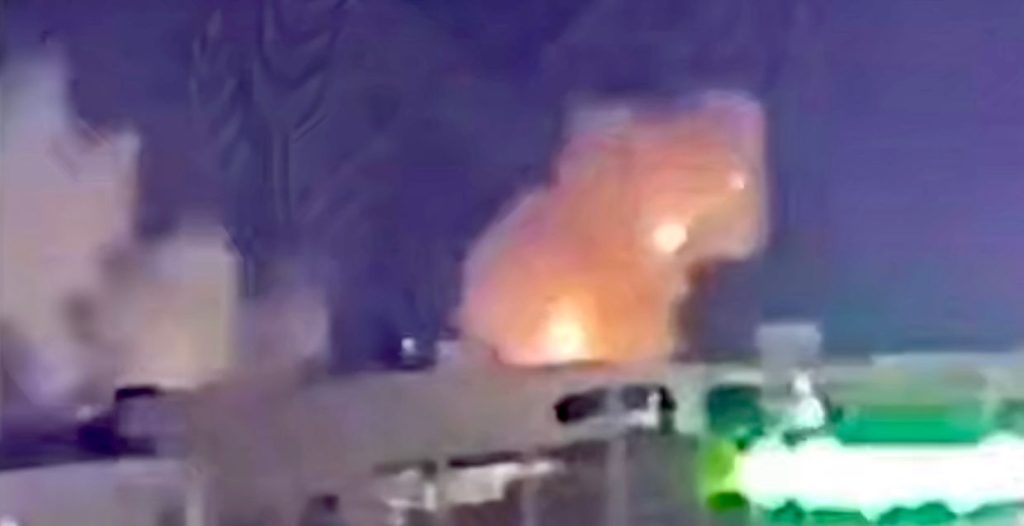Drone Attack on Russia’s Krasnodar Krai: Strategic Implications
On February 10, 2023, a drone attack was reported in Russia’s Krasnodar Krai region, with the Afipskiy oil refinery being the primary target. The refinery, which processes approximately 6.25 million tons of oil annually, is a critical facility for producing diesel fuel and aviation kerosene, essential for Russia’s military operations. According to Andrii Kovalenko, the head of Ukraine’s Center for Countering Disinformation, the attack aligns with Ukraine’s broader strategy to disrupt Russia’s fuel supplies and undermine its ability to fund the ongoing war. However, Ukrainian officials have not officially confirmed their involvement in the strike.
The refinery, located about 200 kilometers from the front lines, serves as a strategic logistics hub for fuel used by Russian troops, particularly in southern Ukraine. Kovalenko emphasized that the facility is not just an industrial site but a key component of Russia’s military infrastructure. While the extent of the damage remains unclear, the attack underscores Ukraine’s efforts to weaken Russia’s war machine by targeting its energy resources.
Russian Response and Civilian Impact
Russian authorities confirmed the drone attack, with Krasnodar Krai Governor Veniamin Kondratiev stating that debris from a downed drone fell on a residential complex in Krasnodar. Fortunately, no casualties were reported. However, the incident highlights the growing risk of civilians being caught in the crossfire as the conflict escalates.
The Russian Telegram channel "Shot," known for its ties to Russian security forces, reported that residents heard powerful explosions around 2:00 a.m. local time. Eyewitnesses also noted air defense activity near the Afipskiy refinery, suggesting a robust response from Russian forces. While the attack on the refinery appears to have been the main objective, the strike on a residential area raises concerns about the collateral damage of such operations.
Ukraine’s Drone Strategy: Disrupting Russian Fuel Supplies
The reported drone attack on the Afipskiy refinery is consistent with Ukraine’s strategy of using long-range drone strikes to target Russian oil facilities. By disrupting fuel supplies, Ukraine aims to limit the Russian military’s ability to operate effectively and reduce Moscow’s revenue from energy exports, which is a crucial source of funding for its war efforts.
This approach has become a key component of Ukraine’s asymmetric warfare tactics, allowing Kyiv to strike at critical infrastructure deep within Russian territory. While the full impact of these strikes is often difficult to assess, they demonstrate Ukraine’s determination to exploit vulnerabilities in Russia’s supply chains and impose economic and logistical pressure on its adversary.
Thousands of North Koreans Reportedly Working in Russia
In a separate but notable development, media reports indicate that thousands of North Korean workers are taking construction jobs in Russia. This move appears to violate United Nations resolutions that prohibit North Korea from sending its citizens abroad for work. These sanctions were imposed after North Korea conducted intercontinental ballistic missile tests, prompting the UN Security Council to tighten restrictions on Pyongyang’s activities.
The presence of North Korean workers in Russia raises questions about the extent of cooperation between the two countries and whether such arrangements are being used to circumvent international sanctions. While the details of these reports remain unclear, they highlight the complex web of alliances and economic ties that are shaping the geopolitical landscape of the conflict.
Conclusion: A Wider Geopolitical Conflict
The drone attack on the Afipskiy refinery and the reported presence of North Korean workers in Russia underscore the multifaceted nature of the ongoing conflict. Ukraine’s targeting of Russian energy infrastructure reflects its efforts to weaken Moscow’s military capabilities and reduce its ability to finance the war. At the same time, the involvement of North Korean laborers in Russia points to broader geopolitical dynamics, with countries seeking to navigate sanctions and maintain economic ties despite international pressure.
As the conflict continues to evolve, the interplay between military strategy, economic pressure, and international cooperation will remain central to the narrative. While the immediate impact of these events is still being assessed, they demonstrate the escalating stakes and the widespread repercussions of the war in Ukraine.












